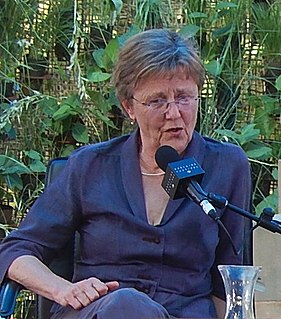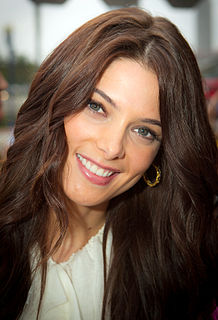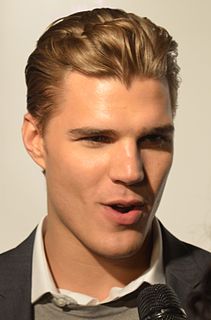A Quote by Chris Wooding
Everything you write makes you better. But if you really need a tip, here's one: a good story begins in opposition to its ending. That means you work out how it finishes first, and then begin the story as far away from that point - in terms of character development - as you can.
Related Quotes
I think that there must be a point of self-immersion in a story that is a point of no return. You get far enough in that the story has really touched you to the core and deeply troubled you and made you unhappy and fearful, and then how do you get out of that? I'm a writer, so my way of getting out of that is to write.
If the point of life is the same as the point of a story, the point of life is character transformation. If I got any comfort as I set out on my first story, it was that in nearly every story, the protagonist is transformed. He's a jerk at the beginning and nice at the end, or a coward at the beginning and brave at the end. If the character doesn't change, the story hasn't happened yet. And if story is derived from real life, if story is just condensed version of life then life itself may be designed to change us so that we evolve from one kind of person to another.
What drew me to Batman in the first place was Bruce Wayne's story, and that he's a real character whose story begins in childhood. He's not a fully formed character like James Bond, so what we're doing is following the journey of this guy from a child who goes through this horrible experience of becoming this extraordinary character. That, for me, became a three-part story. And obviously the third part becomes the ending of the guy's story.
Before I begin a novel I have a strong sense of at least one central character and how the story begins, and a more vague sense of where things may wind up, but at some point, if the novel is any good at all, the story and characters take on lives of their own and take over the book, and the writer has to be open to that.
I believe a good writer can write a good book with any sort of character, in any sort of setting, but I prefer to write about the outsider. It might just be because I've been one (or perceived myself to be one) for so much of my life. But the simple fact of being marginalized immediately brings conflict to a story before the narrative even begins, and that's gold for a writer because it means that your character already has depth before events begin to unfold.
The first commandment for every good explorer is that an expedition has two points: the point of departure and the point of arrival. If your intention is to make the second theoretical point coincide with the actual point of arrival, don't think about the means -- because the journey is a virtual space that finishes when it finishes, and there are as many means as there are different ways of 'finishing.' That is to say, the means are endless.
I would like to believe this is a story I’m telling. I need to believe it. I must believe it. Those who can believe that such stories are only stories have a better chance. If it’s a story I’m telling, then I have control over the ending. Then there will be an ending, to the story, and real life will come after it. I can pick up where I left off.
You need to keep everyone wanting more. Every character has so much depth, and there was so much thought that went into it, but it would've taken away at some point from the main story, and everything I think kind of was woven together really beautifully, so that you cared about everyone, and everyone had their own story, but everything helped the main plotline.
Because I come from the theater, I use the images of the theater and of movies a great deal when I write. I see the story in my head. I have to break down the outline of a story first. I have to know where I'm going. Usually I have a good beginning and a good ending, and then I think, "Now I have to find my way through it."





































